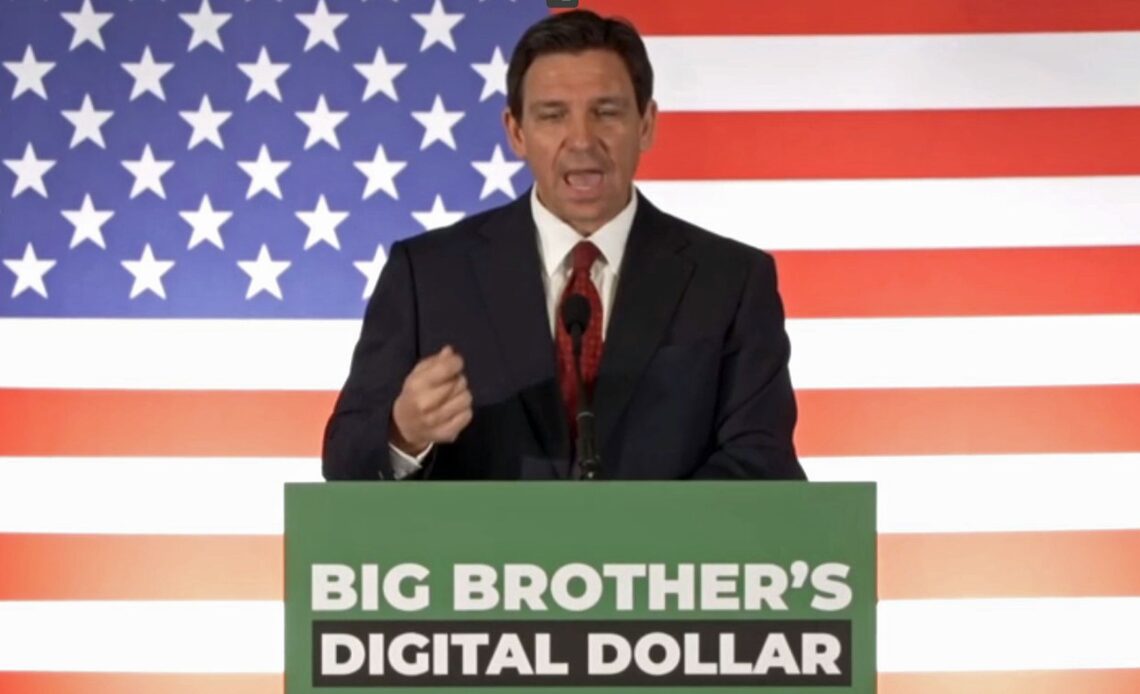- Ron DeSantis and Vivek Ramaswamy had the most to say about crypto in the 2024 presidential field, and as of this week, they’ve both returned to the political sidelines.
- Trump suddenly made noise about U.S. central bank digital currencies last week, but the issue remains a purely theoretical punching bag.
Florida Governor Ron DeSantis may not have been a crypto authority, but he embraced digital assets as a political tool and ensured his influential state made moves to support the industry while he still had his eyes on the White House. His absence – and that of fellow candidate Vivek Ramaswamy – marks a sudden lack of crypto interest in this year’s U.S. presidential race.
Apart from Robert Kennedy Jr., a crypto-friendly independent candidate who has sought to start a third party to get on some of the 2024 ballots, DeSantis and Ramaswamy were the most eager politicians to make virtual assets part of the presidential conversation. Former President Donald Trump – who polls have as the dominant frontrunner in the Republican primary – did pick up one party talking point against a U.S. central bank digital currency (CBDC) at a campaign stop last week.
“I will never allow the creation of a central bank digital currency,” Trump said, acting surprised that the line whipped the crowd into enthusiasm. He warned – as DeSantis had many times before him – that a digital dollar run by the Federal Reserve would give the government “absolute control over your money.”
So, it’s possible that this legacy digital-assets issue could survive the departures of DeSantis and Ramaswamy from the field, but besides his brisk personal business in non-fungible tokens (NFTs), Trump has shown no special interest in the field and once called Bitcoin a “scam.” And the specter of a U.S. CBDC has so far been a one-sided debate in which Republicans paint President Joe Biden and his administration as pushing a government token to spy on the citizenry when there hasn’t been any evidence that the Fed or Department of the Treasury have any such plans.
Both say they’re studying CBDCs and whether such a thing could even be viable in the U.S., a review made more urgent as rival jurisdictions such as China and Europe have moved to put government tokens in place. Fed officials have vowed that they won’t move on a digital…
Click Here to Read the Full Original Article at Cryptocurrencies Feed…
























